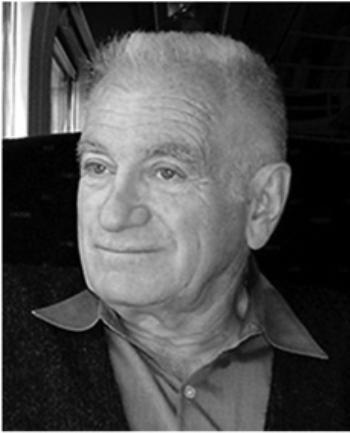
News
Pro-Palestine Encampment Represents First Major Test for Harvard President Alan Garber

News
Israeli PM Benjamin Netanyahu Condemns Antisemitism at U.S. Colleges Amid Encampment at Harvard

News
‘A Joke’: Nikole Hannah-Jones Says Harvard Should Spend More on Legacy of Slavery Initiative

News
Massachusetts ACLU Demands Harvard Reinstate PSC in Letter

News
LIVE UPDATES: Pro-Palestine Protesters Begin Encampment in Harvard Yard
Saving Lives at Sea With a Wireless in Hand

A cardiologist with a penchant for ham radio employs his hobby to save the life of a person who was shot by pirates while at sea in the Caribbean.
It’s not an adventure novel. It’s what Jim C. Hirschman did—twice.
Hirschman has spent his professional life as a physician and his spare time cultivating his interest in amateur radio. And at practically every stage, he has brought the two together.
Radio technology and medical know-how came together most dramatically in April 2000. Pirates had boarded the sailboat of a Dutch family off the coast of Honduras and had shot a 13-year-old boy who was aboard. His injuries were so severe that the bullet severed his spinal cord and paralyzed him.
The boy’s father, seeing his son’s critical state, put out a call for help over ham radio. For nine hours, Hirschman used the radio to instruct the father how to provide medical assistance—aid that helped bring the boy back from the brink of death.
Almost a year later, Hirschman provided medical assistance when pirates boarded a Swedish vessel off the coast of Venezuela and shot a sailor.
“It’s almost as if you’ve prepared your whole life for this event,” Hirschman said. “They have the need and you have the skill.”
For his exploits in the Caribbean, he received the 2001 International Humanitarian Award of the American Radio Relay League, the nation’s leading organization for amateur radio.
As an undergraduate at Harvard, the Indiana native spent his time toying with antennae atop the roofs of Hollis Hall and Adams House. He was so interested in amateur radio that he helped to reestablish the long defunct Harvard Wireless Club.
“His was surely the spirit behind the continuation of the club,” wrote William L. Hampton ’52, a friend and classmate of Hirschman, and the first president of the wireless club since its reestablishment, in an account of the club’s history.
Hirschman served as the club’s second president and, in addition to his involvement with the wireless club, was an active member of the Harvard Rifle Team and dated a Wellesley student who eventually became his first wife—an activity that, in retrospect, he classifies along with his other extracurriculars.
Alongside his activities outside the classroom, he pursued academic life as a chemistry concentrator following an informal pre-med curriculum.
He never actually graduated with the Class of 1952, although he completed the first three years of his undergraduate program and to this day is listed along with all the other members of the Class in their anniversary reports.
With the draft and stormy world events looming over his generation of college men, Hirschman left the College early and enrolled in medical school at Indiana University, one of many institutions that accepted three-year undergraduates at the time.
“We were afraid that we’d get our college experience aborted by the war in Korea,” he says.
Hirschman, who has authored articles in such publications as the British Heart Journal and the Journal of the American Medical Association, says his professional path may have been somewhat different had he decided to stay at Harvard for the fourth year before embarking on his medical career.
“I probably would have stayed more in academics and research,” he says.
Instead, Hirschman went on to receive his M.D. in 1955 and then serve for three years as a U.S. Navy doctor.
Medical school proved to be a distinctly different experience from life at the College.
“At Harvard, we were expected to think, and in medical school, one is expected to memorize,” he said. “Although I had to struggle to get a ‘B’ average at Harvard, I went on to get all A’s in my first semester of medical school.”
After completing his formal schooling and finishing his time in the armed services, Hirschman put to work both his medical and his radio skills to develop what he calls his most rewarding achievement—a system for transmitting electrocardiograph readings via radio. It was the first on-scene emergency care system to transmit medical data by radio.
“The thread that runs through all this is networking to put together unrelated skills to solve problems,” he says.
He incorporated the new emergency care system into a curriculum he developed to teach firefighters how to be paramedics—a practice that has taken root in many cities across the country.
In the years since he created the emergency care system, Hirschman says the infrastructure has developed in ways he hadn’t anticipated, with a heavier emphasis on training than in the past.
Paramedic training now generally requires two years of junior college education, and he says this highly specialized and intensive approach means fewer people receive training in the first place.
“In many ways, it’s become too academic,” he says. “There’s the potential to hurt, as [training] becomes more expensive.”
As for his own training, Hirschman felt early on that he should put his dual expertise in radio and medicine to use on the high seas—where paramedics couldn’t reach.
“I was a young doctor,” he says. “I was successful. My practice was growing. But I wanted to do more.”
—Staff writer Alexander J. Blenkinsopp can be reached at blenkins@fas.harvard.edu.
Want to keep up with breaking news? Subscribe to our email newsletter.
